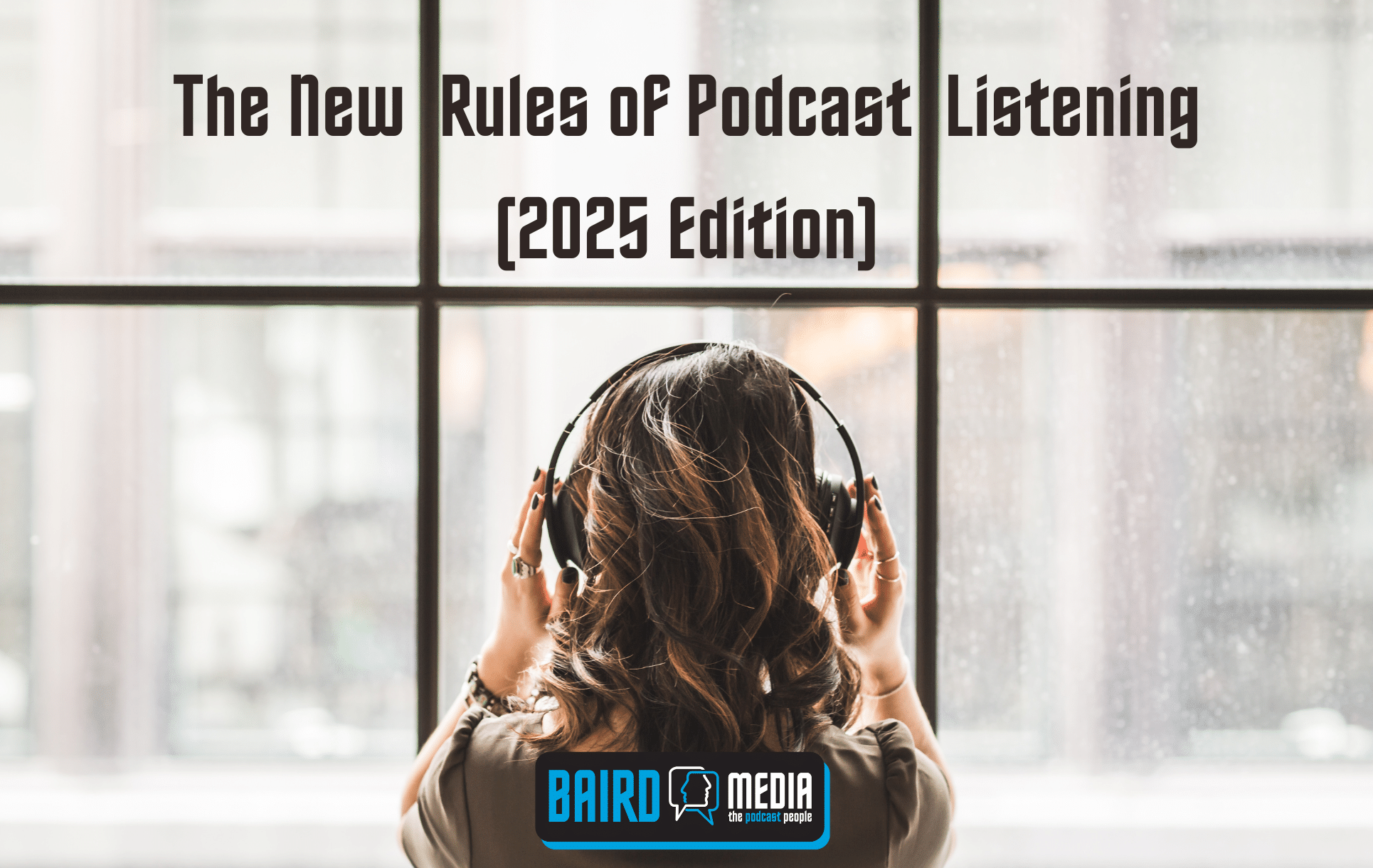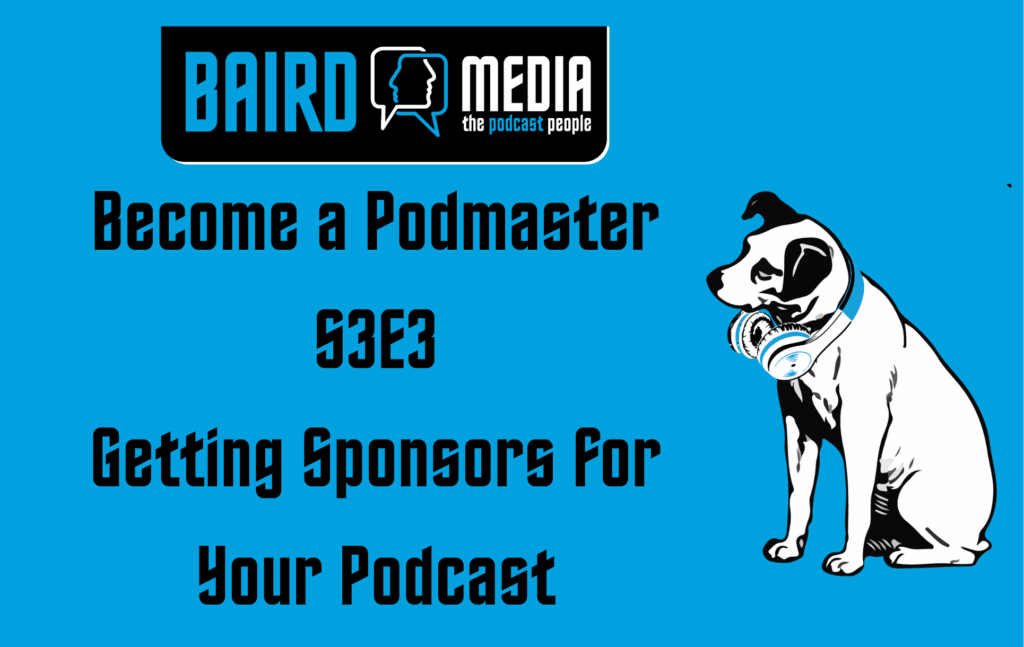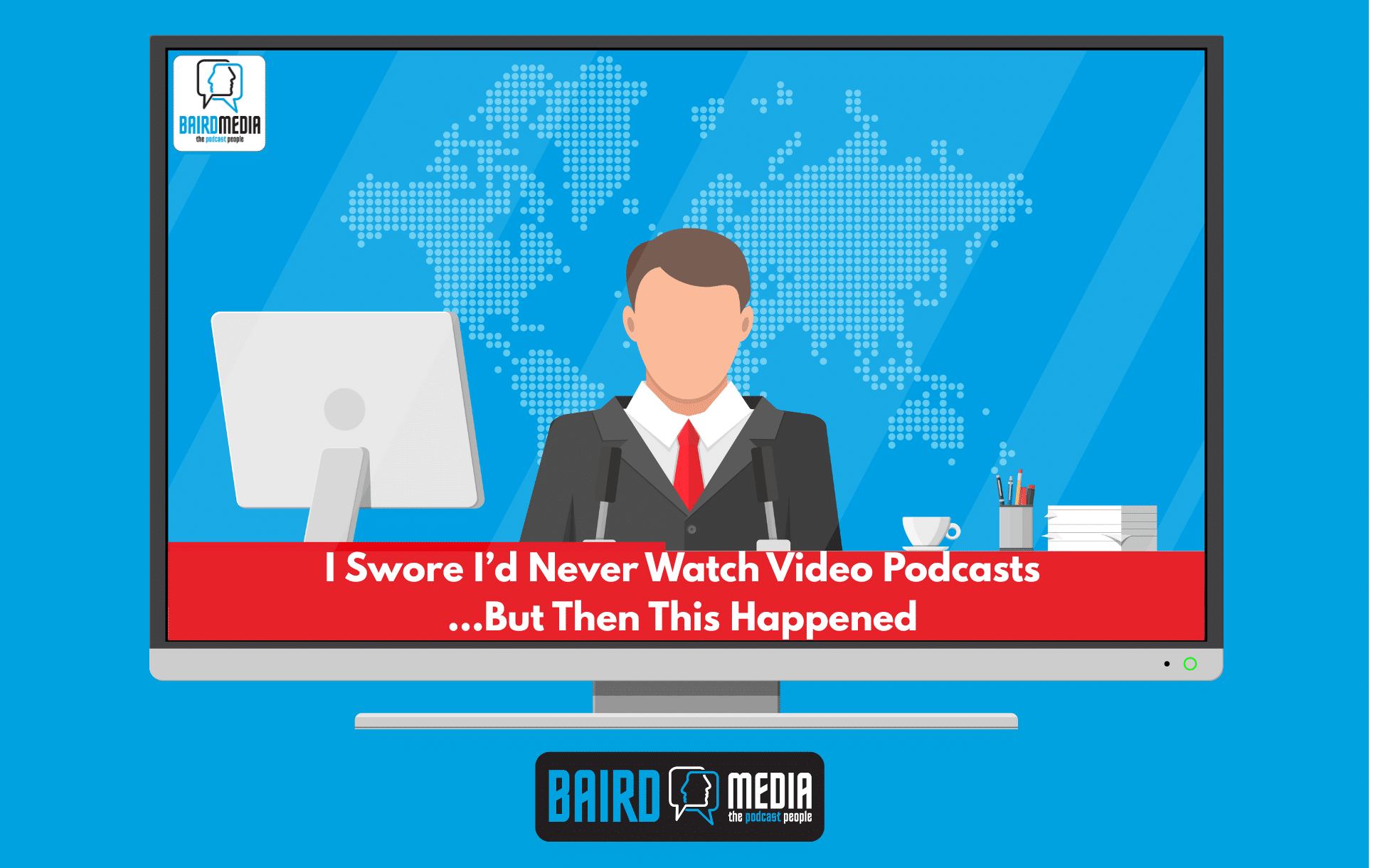

In the world of podcasting, few topics generate more buzz (and more confusion) than sponsorships.
It’s often seen as the holy grail of podcasting success: land a sponsor, get paid to talk, and call it a day.
But as Hendrik and Ethan unpacked in Episode 3 of Become a Podmaster™, the reality is more nuanced. The good news?
You don’t need a massive audience to attract sponsors – you just need the right strategy.
Many podcasters believe they need tens of thousands of downloads to be taken seriously by sponsors.
It’s easy to understand why – so much of the conversation in media buying is still driven by impressions and reach.
But as Ethan points out, a niche podcast with 500 loyal listeners can be more valuable than a broad show with 10,000 disengaged ones.
Why?
Because sponsors want to reach the right people, not just lots of people.
If your podcast speaks directly to a focused, highly engaged audience (like vegan athletes, first-time entrepreneurs, or vintage guitar collectors) then your audience becomes a perfect fit for niche brands.
It’s not about audience size – it’s about audience alignment.
Hendrik and Ethan emphasize the importance of understanding what a sponsor is trying to achieve.
Are they trying to build brand awareness?
Sell a product?
Align with a certain community or value set?
To show them you’re the right fit, you need to demonstrate:
Who your audience is (demographics, psychographics, interests)
How engaged they are (social interaction, listener feedback, email opens)
Why your podcast aligns with the sponsor’s brand and values
You also need to show up professionally—have a pitch deck, a rate card, and a clear sense of what you’re offering in return for their investment.
There are generally two ways to approach podcast sponsorship:
Programmatic Ads – These are automated ads placed by networks based on listener data. You often need large numbers to qualify, and the payout is low.
Direct Sponsorship – This is where you reach out to a potential partner and propose a tailored sponsorship.
For smaller, independent podcasters, direct sponsorship is usually the more viable route.
It allows for creativity – custom ad reads, product mentions integrated into your content, giveaways, interviews with the brand’s founder.
You’re not just selling space; you’re offering a relationship with your audience.
Ethan and Hendrik break down the basic tools you’ll need:
A media kit or pitch deck that outlines your show, audience, past successes, and what the sponsor can expect.
A rate card showing sponsorship options (e.g., mid-roll mentions, episode takeovers, social media shout-outs).
Clear stats: average downloads per episode, listener demographics, engagement examples.
The hosts remind us: your pitch isn’t just about price – it’s about value.
If a sponsor can’t see what’s in it for them, they won’t bite.
But if you offer something unique (a trusted voice, a passionate niche, or a podcast that mirrors their brand identity) you’re on solid ground.
One of the most helpful insights in the episode came from Solid Gold Podcasts’ Gavin Kennedy: sponsorships work best when the audience wants to hear from the brand.
If you’re pushing random products for quick cash, you’ll lose trust.
But if the sponsor adds value – say, a mental wellness app on a burnout podcast – the ad becomes part of the experience.
Russell Wasserfall, another guest mentioned in the episode, shared his approach: don’t just wait for sponsors to come to you.
Think about who would benefit from reaching your audience and pitch them.
Local businesses, niche brands, even individuals with aligned values are all potential partners.
The million-dollar question: can new or small podcasts attract sponsors?
The answer is yes, but it may take time.
Hendrik and Ethan are honest about the challenges.
You need a good product, a clear pitch, and realistic expectations.
Sometimes your podcast doesn’t need to generate direct income at all.
It can serve as a content marketing tool that leads to consulting, speaking gigs, or course sales.
The podcast is your calling card, your proof of expertise.
In fact, many of the most profitable podcast creators aren’t relying on ad revenue.
They’re using their podcast to build authority, create trust, and drive people toward a business.
You don’t need a huge audience to get a sponsor—you need the right audience.
Create a professional pitch deck and rate card to approach sponsors.
Focus on value and alignment, not just downloads.
Direct sponsorships give you more flexibility and control than programmatic ads.
Your podcast can be an ad—for your skills, services, or business.
Sponsorship can be a powerful way to grow your podcast’s income, but it’s not a shortcut to riches.
It requires relationship-building, thoughtful strategy, and clarity about what makes your show worth supporting.
As Ethan says, “Spoiler: You don’t need 10,000 listeners to attract a sponsor—you just need the right 500.”
Ready to pitch your first sponsor?
Make sure you can answer the question every brand will ask: why your podcast, and why now?
Your voice is your brand. Your podcast should sound like it.
We help creators, coaches, and businesses make shows that stand out – for the right reasons.
Book a free consultation and let’s build something powerful.


© Baird Media 2025